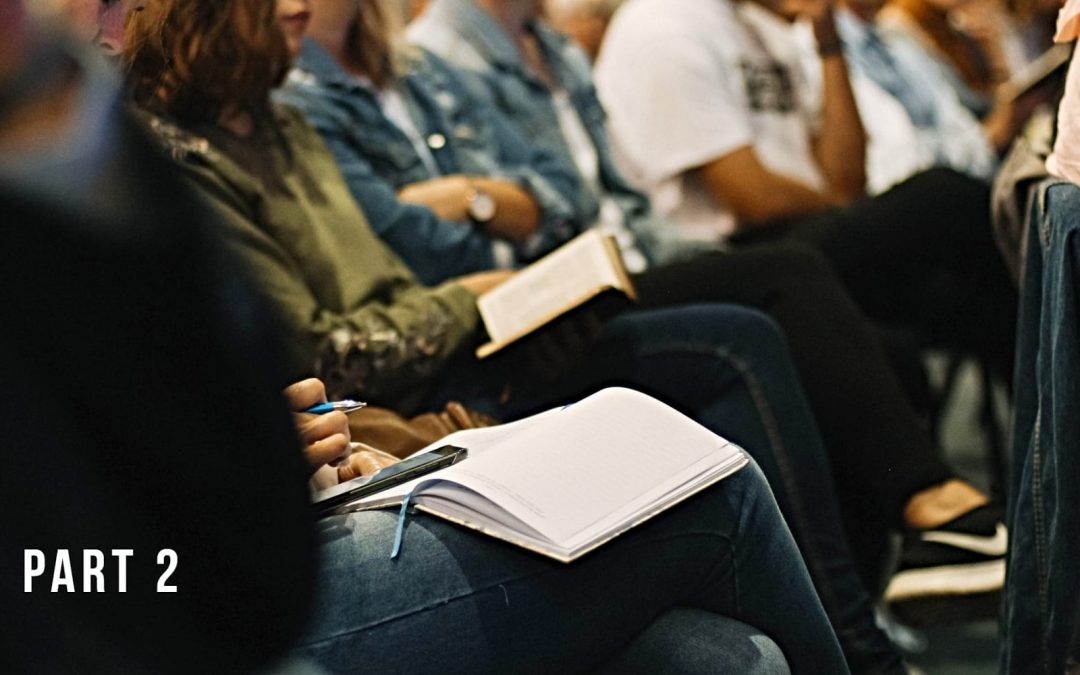Patterns of worship and ministry continually evolve in response to the currents of culture and emerging understandings of the faith pilgrimage.
We have asked previously about what this might mean for the educational task within the Christian community of faith.
The following are some “thoughts for the table” to guide our reflection and conversation related to some basic topics that will no doubt remain in focus, no matter what the future shape of the Christian community turns out to be:
- Faith will need to be seen as a relationship and a lifelong process to live into, rather than a body of beliefs to accept.
Like any meaningful relationship, faith has its beginnings, its formative influences and a long process of maturation.
Questions, doubts, refinements of understanding and changing patterns of belief are to be expected and embraced as essential features of the journey.
The goal: to see faith as a journey trusting the covenant promise, “I will be with you,” and to see beliefs as the ideas and concepts that accompany and often change in that growing relationship.
- The Bible will need to be viewed and understood as a collective testimony of many generations of a people transformed by an experience with God in their history, reflecting their own developing understanding of that experience and its implications for life.
This will help to counter the tendency to see the Bible as a book of truths handed down from heaven and to provide an openness to the benefits of careful biblical scholarship, rather than resistance and opposition to them.
The goal: not so much to believe what the Bible says, but to see what the Bible sees and to accept its invitation to join the faith journey to which it testifies.
- Theology will need to be understood as a reflective process considering God’s work in the world and its formulation in doctrine as a derivative process from the faith experience, always with an open edge toward continued refinement of understanding as the faith journey meets new challenges and opens new vistas.
The goal: the kind of “theological humility” that recognizes the partiality of understanding at any given time and an openness to the “new things” that God is doing among and through God’s people.
- God will be thought of not as “a being” separate from life and the world, but as the name we give to the “ultimate reality” that is present in all of life and the world – recognizing that the history of humanity and the many cultures of the world have used different names and many ways to point to this reality.
The goal: to see the difference between God and our concepts of God and to understand the historical and cultural conditioning of the latter and the natural progress of refinement as faith matures. The key illustration is how the concept of God evolves through the biblical testimony.
- Jesus Christ will be encountered as the disclosure in history of the eternal Christ, who reflects in concrete human experience the nature and character of God.
His lived life of openness to God’s spirit is portrayed by his followers then and throughout history as the way to live into the image of God, in which all are created.
The goal: to understand Jesus the Christ as the inclusive disclosure of the reconciling love that is the relation of God to the world.
- The church will be experienced and understood as an interdependent family of diverse needs and gifts, quite beyond any particular form and structure.
It will be defined by commitments and relationships that reflect the love and justice that are the central threads in the fabric of the tradition, composed of people whose faith journeys are seen as personal but not private.
The goal: to understand church not in terms of its institutional limitations and deficiencies but in terms of its possibilities as a context for wholeness.
- Ethics will be concerned with not only “doing the right thing,” but also with understanding more deeply the “why” of the “right thing.”
As a result, when confronted with issues with conflicting prescriptions, or no prescriptions at all, decisions can be made on the basis of a deeper level of understanding than a simple choice to apply an established or prejudged precept.
The goal: to deepen the roots of personal and corporate ethics in a manner suggested by Jesus (Matthew 5:21-48) and Paul (1 Corinthians 8), so that decisions will be based on the deeper levels of human experience and the wider scope of community.
These somewhat abstract nuances of perspective toward traditional topics are not likely to be immediately applicable to the experience of children in the educational context of church life.
However, if the adults who will guide them will reflect maturing perspectives on concepts of faith, the Bible, theology, God, Jesus, the church and ethics, they will be alert to opportunities to plant the seeds of healthy growth in thinking about these features of our faith heritage and to avoid inadvertently scattering seeds of misunderstanding.
Our children will have faith, and our faith will have children, not because we have fought to preserve or change our structures, but because we have been intentional in nurturing the identity of who we are as a covenant people.
Editor’s note: This article is the second of a two-part series. Part one is available here.
Professor emeritus of religious studies at Mercer University, a member of Smoke Rise Baptist Church in Stone Mountain, Georgia, and the author of Keys for Everyday Theologians (Nurturing Faith Books, 2022).


